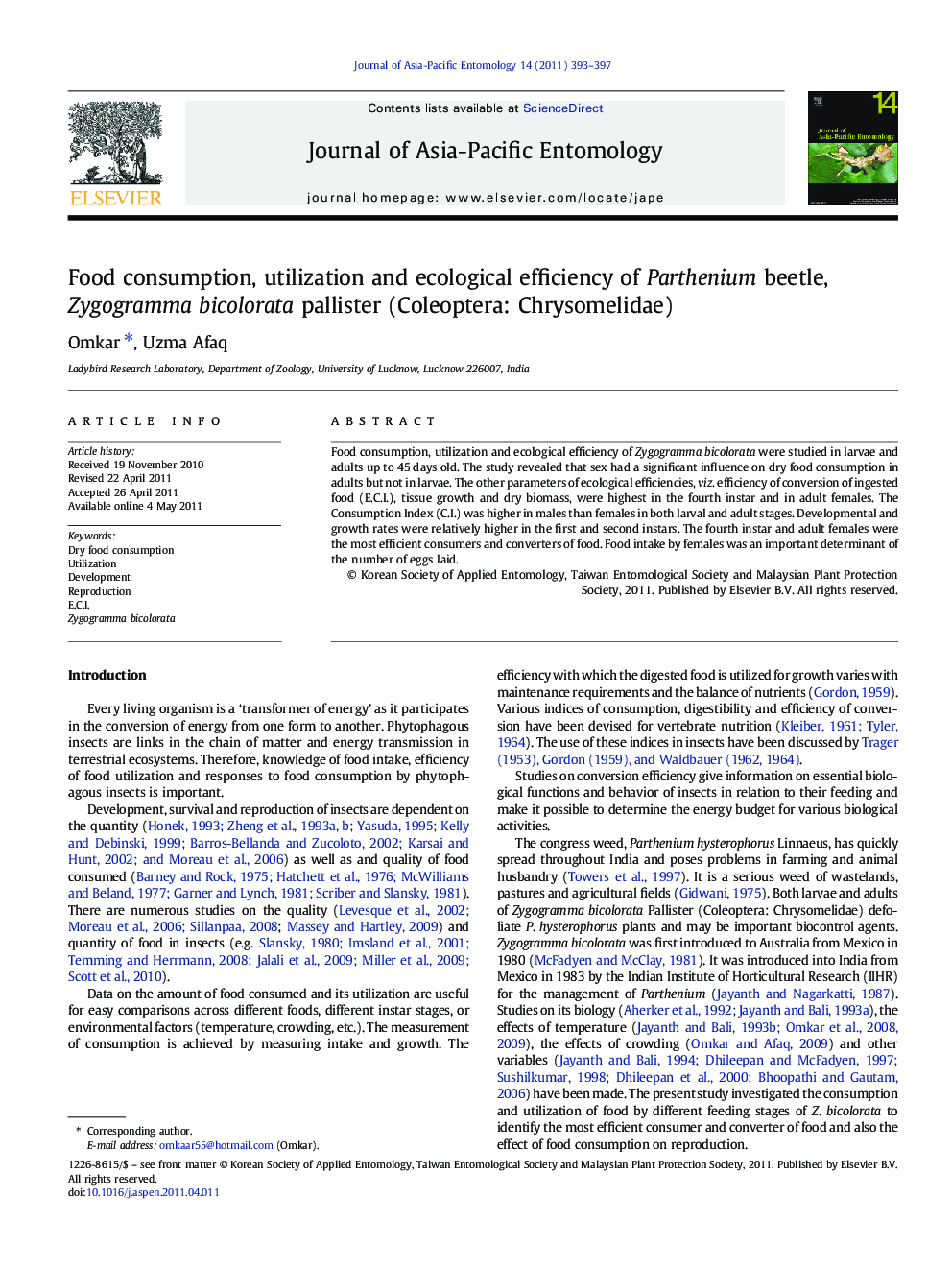| Article ID | Journal | Published Year | Pages | File Type |
|---|---|---|---|---|
| 4524557 | Journal of Asia-Pacific Entomology | 2011 | 5 Pages |
Food consumption, utilization and ecological efficiency of Zygogramma bicolorata were studied in larvae and adults up to 45 days old. The study revealed that sex had a significant influence on dry food consumption in adults but not in larvae. The other parameters of ecological efficiencies, viz. efficiency of conversion of ingested food (E.C.I.), tissue growth and dry biomass, were highest in the fourth instar and in adult females. The Consumption Index (C.I.) was higher in males than females in both larval and adult stages. Developmental and growth rates were relatively higher in the first and second instars. The fourth instar and adult females were the most efficient consumers and converters of food. Food intake by females was an important determinant of the number of eggs laid.
Graphical abstractFigure optionsDownload full-size imageDownload as PowerPoint slideResearch Highlights► Examined food consumption, utilization and ecological efficiency of Zygogramma bicolorata. ► Sex had a significant influence on food consumption in adults but not in larvae. ► Females are more efficient consumers and converters than males. ► Fourth instars are the most efficient consumers and converters of food into biomass.
